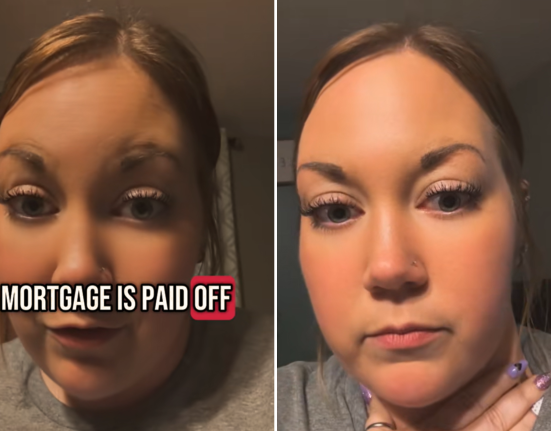A reader wonders whether their recent drop in income will affect their mortgage options
Is the mortgage market turbulence getting you down? Have you got a mortgage-related question you need answering? Email in and we’ll get one of our experts to reply. Nick Mendes, mortgage technical manager at John Charcol, has given his advice to a reader below. If you have a question for our experts, email us at money@inews.co.uk.
Question: Our household income was £80,000 when we first took out our fixed-rate mortgage and we borrowed £360,000. Since then, my partner has stopped working after we had a son, and now we only earn £70,000 combined. Will we struggle to remortgage? What should we do?
Answer: Firstly, congratulations on your new arrival — it’s an exciting (if slightly nerve-wracking) time. Now, on to the mortgage.
A drop in household income can have an impact when it comes to remortgaging because lenders assess what you can afford based on your current earnings and outgoings, not what they were when you first took the loan out. That said, it doesn’t automatically mean you’ll struggle.
When you first took out the mortgage, you would have likely borrowed around 4.5 times your household income, which was fairly typical for the market. Now that your income has dropped, you might be worried about meeting affordability requirements. However, the good news is that there are plenty of options available.
In today’s market, a growing number of lenders offer higher income multiples — in some cases, up to 5.5 or even 6 times income for certain borrowers. This means that even with the change in your financial circumstances, there should be a lender out there willing to help.
It’s important to understand that when you apply to remortgage, lenders will carry out a fresh affordability assessment. This usually involves looking closely at your income, monthly outgoings, debts, and new expenses — such as childcare costs. They’ll want to be sure that you can comfortably afford the repayments on your new deal.
Here are a few options to consider: You could stay with your current lender via a ‘product transfer’, which is simply switching to a new rate with your existing lender. Often, this doesn’t require a full affordability check, making it much easier if your income has dropped.
It is worth shopping around. Some lenders are more flexible than others, and a mortgage broker could help you find one that is comfortable with your new financial situation and able to offer a higher income multiple.
You might consider extending the mortgage term. This could reduce your monthly repayments and improve affordability, although it does mean you’ll pay more interest over the life of the loan.
Another option, depending on your circumstances and needs, could be to switch part of your mortgage onto an interest-only basis. Some lenders allow a portion to be on interest-only and the rest on repayment, which can ease the monthly burden while still allowing you to pay down the balance gradually.
If possible, you could look at overpaying now. If you’ve got any savings or can overpay slightly before your fixed term ends, you might be able to bring your mortgage balance down enough to make remortgaging easier.
It’s also worth checking your credit score before you apply. Even small things, like missed payments on a credit card or mobile phone bill, can affect your application, and when your income is lower, lenders tend to look at your overall financial profile more closely.
Timing is key, too. Ideally, you should start exploring your remortgage options around three to six months before your current deal expires. That gives you plenty of breathing space and avoids the risk of being moved onto your lender’s more expensive standard variable rate.
Remember, life changes are completely normal, and lenders and brokers understand that incomes don’t stay the same forever. By getting the right advice early and exploring all your options, you should be able to find a solution that works for your new circumstances and keep your mortgage on track.







